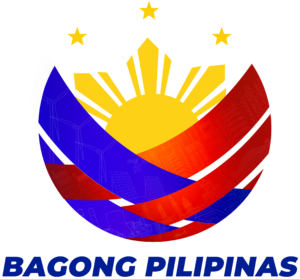BONIFACIO’S UNDEAD LEGACY
by Peter Jaynul V. Uckung
Andres Bonifacio was not the father of the Philippine Revolution.
Social injustice was.
He was not poor. He was not uneducated. He was a working class hero, who initiated a period of immense struggle from below, an effort often treated as a footnote in Philippine history.
But a footnote in history, rescued from obscurity, and subjected to moral scrutiny could help students become critical agents who can speak, write, and assert their own histories, voices and realities. A footnote in history, in the hands of an erudite teacher can help students acquire knowledge to act in their collective self-interest and change the world without taking power.
Andres Bonifacio is often treated as a footnote in history, relegated to a chapter of cannot be and should not be. Saluted for being. Regaled for trying.
Remembered on his birthday. Forgotten the next day.
Blame it on a system that really doesn’t need him.
After Bonifacio, it was clear that advanced capitalist powers and oppressed nations are not equal in international diplomacy (or anything international).
That in a legal contest over the interpretation of, say the legality of freedom by revolution over colonialism, the nation with the greatest power is more likely to win its interpretation over those with less power.
After Bonifacio, the Filipinos experienced how the United States used political humanitarianism as ideological justification for submerging the Philippines into American control, overthrowing a progressive government and installing reactionary rulers.
Bonifacio’s intrusion into the system so modified for sowing social inequality was so threateningly effective in throwing it into high reverse gear. A frantic solution was concocted by those whose power and privileges were endangered by Bonifacio’s revolution. The solution invented was reconciliation, an approach to social crimes involving exposure but not retribution. A formula so effective that it is still being used today.
In actually musing how Bonifacio became Bonifacio one will see him opposing a social order in which it was possible for a priest or landlord who does absolutely nothing that is useful, to amass a fortune of hundreds of thousands of pesos, while thousands upon thousands of Filipino men and women who work all the days of their lives secure barely enough for a wretched existence.
From Bonifacio, we learn that a revolution is the weapon of the oppressed. And what is a revolution? It is resistance to wrong. The brutalization of poverty is the springboard of a militant mind. It was a call that could not be denied by anyone possessing the code of righteousness.
When the revolution impacted on the minds of the Spanish colonial masters, they reacted like a wounded tiger, slashing and tearing suspected Katipuneros apart and writing reports screaming of native treachery and cultural ingratitude, totally writing off the evils of colonialism that brought forth such vengeful forces.
These colonial government reports survived to this day and, being used as sources of history, dilute the memory of the raison d’ etre of the revolution.
Bonifacio the revolutionary proved that we cannot take government reports and statistics as accurate representation of how people were living then. Just as how unbelievable the government is when reporting economic prosperity based on increased GNP alone.
After Bonifacio, we discovered that passivity is not natural. That poverty is not divinely ordained. That there is a tremendous degree of violence in a society imposing servility and silence on the people. That in order for injustice to reign, the people must be cowed by whatever means, be it by religion, education or legalization. That the people must believe on their own cultural inferiority.
After Bonifacio, all these myths were exposed. Exposed too were the enormous profits made by those who thrived by imposing fear and racism.
Because we know Bonifacio, we can readily recognize the deception and disinformation that colonizers used to cover their malignant economic system.
Bonifacio was a true nationalist. And we laud him for that. Nationalism is taught in school and is expected to be shown by everyone, more so by our politicians. Actually nationalism is the ultimate foe of globalization, an economic system our government has forced us to embrace.
Globalization, or free market, takes decision making out of government’s hand which the public has at least some potential control, and hands it over to a faceless creature called the international market over which the public has absolutely no control.
Globalization gives the advantage of capital mobility to business corporations by relocation of operations to more favorable places, where taxes, wages and environmental standards are lowest. This to ensure maximum profit.
A nationalistic law would have wrought murder to any globalizing business effort to the Philippines.
For globalization, Bonifacio’s memory is anathema.
Nationalistic restrictions impede the flow of profits. That is clear.
Then why is Bonifacio, the militant nationalist, a hero? Because with him we can remember the moments in the past which show the possibility of a solution to a social dilemma. That change is possible. In knowing Bonifacio, history is power.
Heroes are social anomalies. They emerge when a government cannot solve an unbearable social problem.
Dead, but still deadly, Andres Bonifacio, is a real hero. Remember him; he holds the key to national salvation.

